
Lekki: The Vibrant Jewel of Lagos
Lekki is a dynamic and bustling neighbourhood in Lagos, Nigeria, known for its blend of modernity and rich cultural heritage. This coastal gem offers a mix of beautiful beaches, upscale shopping centres, and a vibrant nightlife that makes it a must-visit destination for any tourist. Lekki’s beaches are some of the finest in Nigeria. Elegushi Beach and Lekki Beach are perfect spots to soak up the sun, enjoy water sports, or simply relax with a cold drink. These beaches often host local music and dance performances, giving visitors a taste of Nigerian culture right on the shoreline. For those interested in shopping and dining, Lekki boasts a variety of high-end boutiques and gourmet restaurants. The Palms Shopping Mall and Lekki Arts and Crafts Market are ideal places to find unique souvenirs and enjoy local cuisine. Don’t miss out on trying traditional Nigerian dishes like Jollof rice and pounded yam. Nature enthusiasts will find Lekki Conservation Centre to be a delightful escape from the hustle and bustle of city life. This nature reserve offers a canopy walkway, lush greenery, and an opportunity to see some of Nigeria’s unique wildlife. It’s a great spot for bird watching and photography. Lekki is also home to several cultural and historical sites. The Nike Art Gallery showcases the rich artistic heritage of Nigeria, featuring works from both established and emerging artists. Lekki is a neighbourhood where tradition meets modernity, making it a fascinating destination for any traveller.
Local tips in Lekki
- Visit Lekki Conservation Centre early in the morning to avoid crowds and catch a glimpse of the wildlife.
- Carry cash when visiting local markets like Lekki Arts and Crafts Market, as not all vendors accept cards.
- Weekends can be crowded at the beaches, so consider visiting on a weekday for a more relaxed experience.
- Try to negotiate prices at local markets and shops, as haggling is a common practice in Nigeria.
- Stay hydrated and wear sunscreen, especially when spending time outdoors at the beaches or the conservation centre.
Lekki: The Vibrant Jewel of Lagos
Lekki is a dynamic and bustling neighbourhood in Lagos, Nigeria, known for its blend of modernity and rich cultural heritage. This coastal gem offers a mix of beautiful beaches, upscale shopping centres, and a vibrant nightlife that makes it a must-visit destination for any tourist. Lekki’s beaches are some of the finest in Nigeria. Elegushi Beach and Lekki Beach are perfect spots to soak up the sun, enjoy water sports, or simply relax with a cold drink. These beaches often host local music and dance performances, giving visitors a taste of Nigerian culture right on the shoreline. For those interested in shopping and dining, Lekki boasts a variety of high-end boutiques and gourmet restaurants. The Palms Shopping Mall and Lekki Arts and Crafts Market are ideal places to find unique souvenirs and enjoy local cuisine. Don’t miss out on trying traditional Nigerian dishes like Jollof rice and pounded yam. Nature enthusiasts will find Lekki Conservation Centre to be a delightful escape from the hustle and bustle of city life. This nature reserve offers a canopy walkway, lush greenery, and an opportunity to see some of Nigeria’s unique wildlife. It’s a great spot for bird watching and photography. Lekki is also home to several cultural and historical sites. The Nike Art Gallery showcases the rich artistic heritage of Nigeria, featuring works from both established and emerging artists. Lekki is a neighbourhood where tradition meets modernity, making it a fascinating destination for any traveller.
Iconic landmarks you can’t miss
Elegushi Royal Beach Lekki Phase I Lagos
Discover the vibrant Elegushi Royal Beach in Lagos, a perfect blend of relaxation, culture, and local entertainment on Nigeria's stunning coastline.
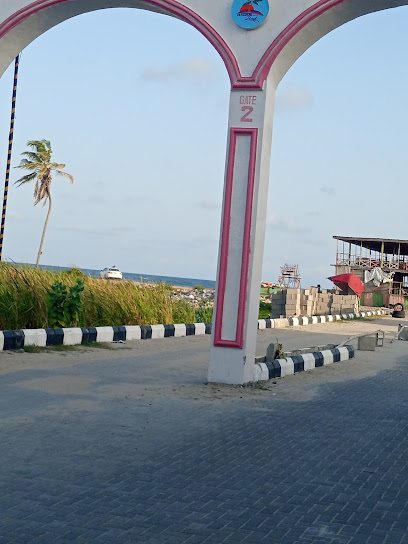
Lekki Conservation Centre
Discover the beauty of nature at Lekki Conservation Centre, Lagos' premier nature preserve featuring lush landscapes and an exhilarating canopy walkway.
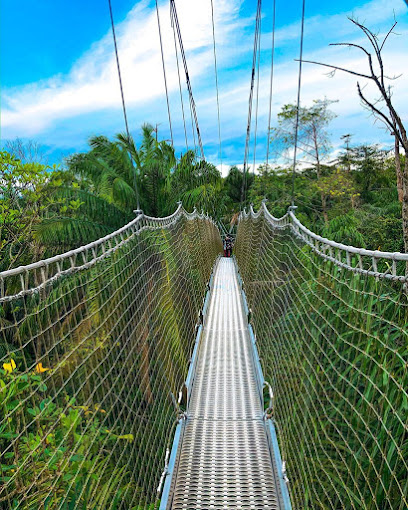
Freedom Park Lagos
Explore Freedom Park Lagos, a historical national park blending nature, culture, and relaxation in the vibrant heart of Lagos.
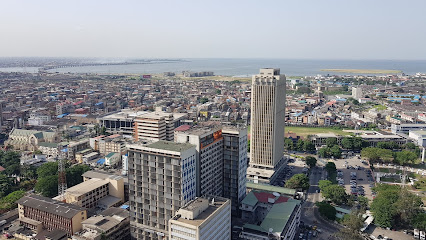
Lekki Leisure
Discover the stunning Lekki Leisure Resort in Lagos, where relaxation meets adventure along the beautiful coastline of Nigeria.
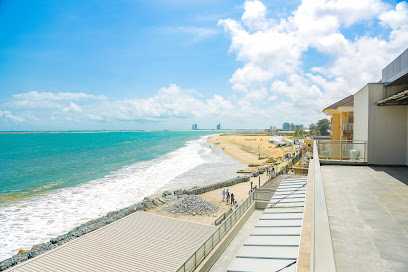
Fun Factory
Discover endless fun and adventures at Fun Factory, the premier amusement park in Lekki, perfect for families and thrill-seekers alike.
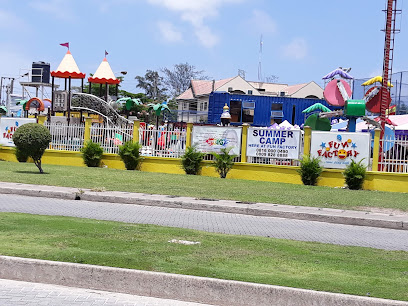
Phase 2 Lekki Gardens
Discover the tranquil beauty of Phase 2 Lekki Gardens in Lagos – a perfect blend of nature and modern living for a relaxing getaway.

Jaekel House
Discover the captivating history of Nigeria's railway at Jaekel House, a unique museum in Lagos showcasing heritage and engineering marvels.
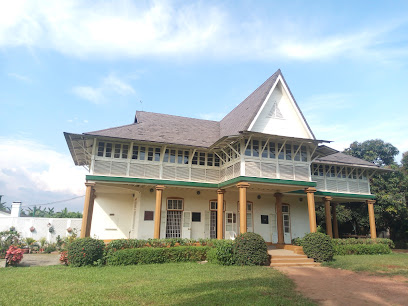
Lekki Free Trade Zone
Discover the Lekki Free Trade Zone, Lagos' vibrant industrial hub, where commerce meets opportunity in Nigeria's booming economy.
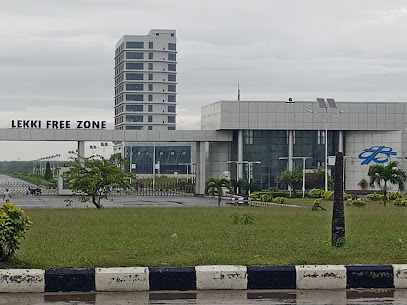
Lufasi Nature Park
Experience the tranquility of Lufasi Nature Park, a lush oasis in Lagos perfect for nature lovers and families seeking relaxation and adventure.
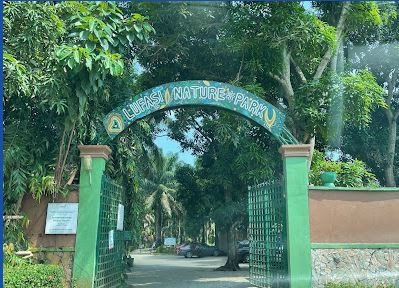
Admiralty Roundabout
Explore the vibrant Admiralty Roundabout in Lekki Phase I, Lagos—a historical landmark and bustling hub of culture and activity.
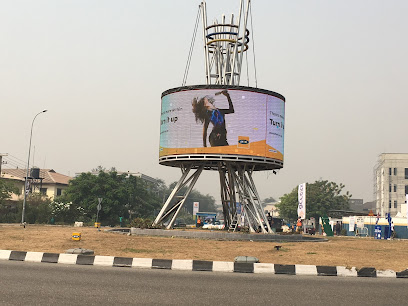
Unmissable attractions to see
Elegushi Royal Beach Lekki Phase I Lagos
Experience the lively atmosphere at Elegushi Royal Beach in Lagos, where stunning scenery meets vibrant local culture for an unforgettable beach experience.
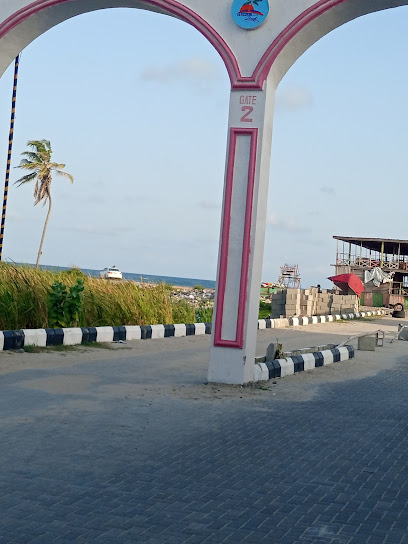
Lekki Conservation Centre
Experience the beauty of Nigeria's wildlife at Lekki Conservation Centre, a premier nature preserve in Lagos with scenic walks and rich biodiversity.
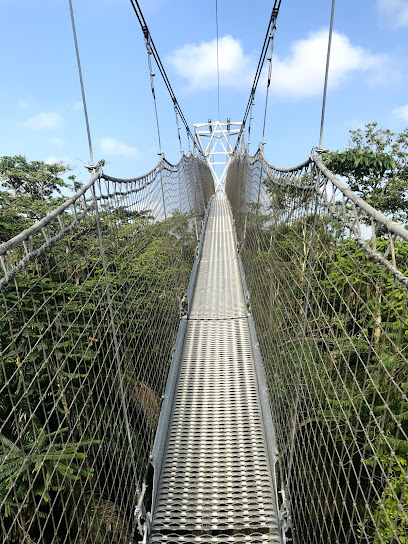
Nike Art Gallery
Explore Nike Art Gallery, a vibrant hub of Nigerian art, showcasing traditional and contemporary masterpieces in the heart of Lekki, Lagos.
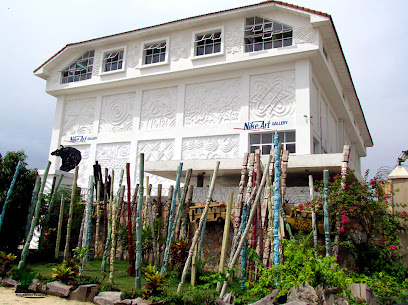
Fun Factory
Explore Fun Factory, Lekki's premier amusement park, offering thrilling rides, arcade games, and endless fun for families and adventure seekers alike.
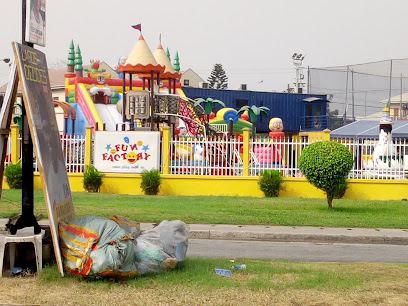
Oba Elegushi Palace
Experience the rich culture and heritage of the Elegushi kingdom at the Oba Elegushi Palace in Lagos, a must-visit tourist attraction.
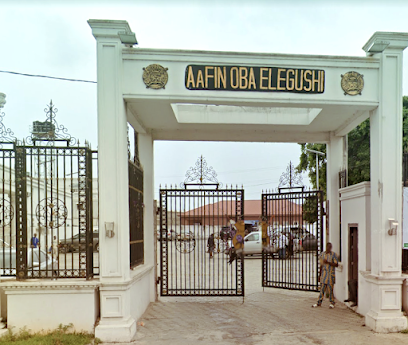
LCC Canopy Walkway
Experience the breathtaking LCC Canopy Walkway, one of Africa's longest, and immerse yourself in the vibrant ecosystem of Lekki Conservation Centre.
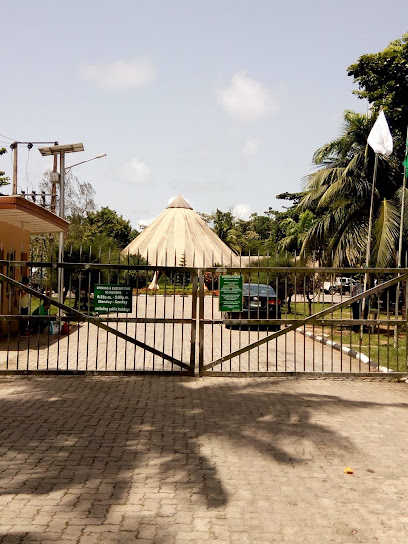
Boat Cruise Ng
Discover tranquil waters and breathtaking views with Boat Cruise NG - the perfect getaway for relaxation and adventure in Lekki, Lagos.
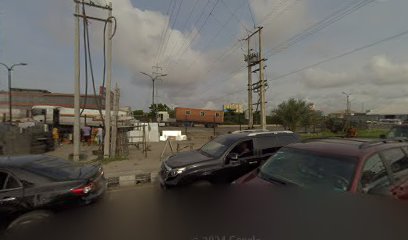
Dan&Den Oceanfront club elegushi
Experience the vibrant nightlife and stunning ocean views at Dan&Den Oceanfront Club in Lekki, Lagos, a premier destination for relaxation and entertainment.
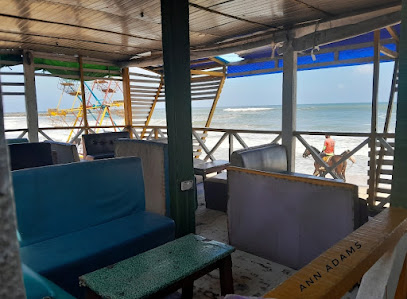
Tourists Arena
Experience the beauty and adventure of Tourists Arena in Lekki, a perfect destination for nature lovers and families seeking outdoor fun.
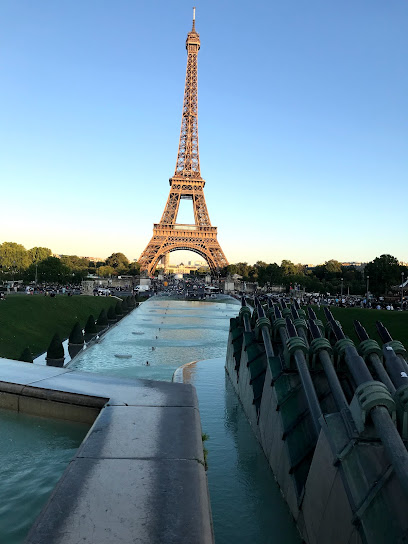
Fatboy_inch
Experience the vibrant culture and delicious cuisine at Fatboy Inch, a must-visit tourist attraction in Lekki, Lagos, Nigeria.
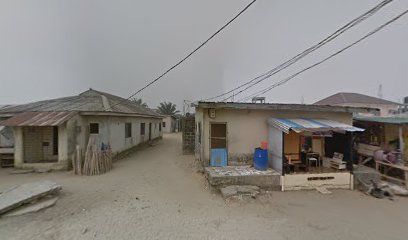
Essential places to dine
Farmcity Lekki lounge
Experience authentic West African cuisine at Farmcity Lekki Lounge - where vibrant flavors meet lively entertainment in Lagos.
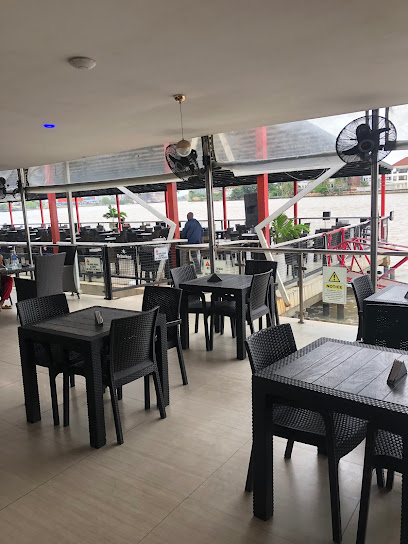
Sailors Lounge | Restaurant | Lounge | Bar in Lekki Lagos
Discover Sailors Lounge in Lekki – where exquisite dining meets breathtaking lagoon views for an unforgettable experience.
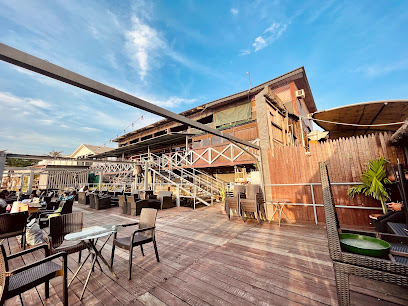
Bay Lounge
Experience the vibrant culinary scene at Bay Lounge in Lekki Phase 1 - where dining meets nightlife in Lagos.
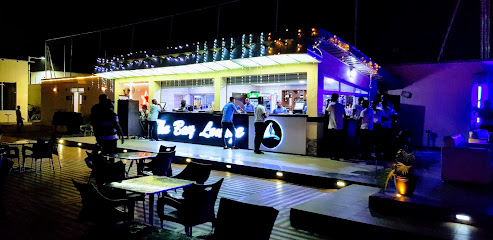
Black Bell Restaurant Lekki
Experience exquisite Nigerian cuisine at Black Bell Restaurant in Lekki - where breakfast meets tradition and flavor.
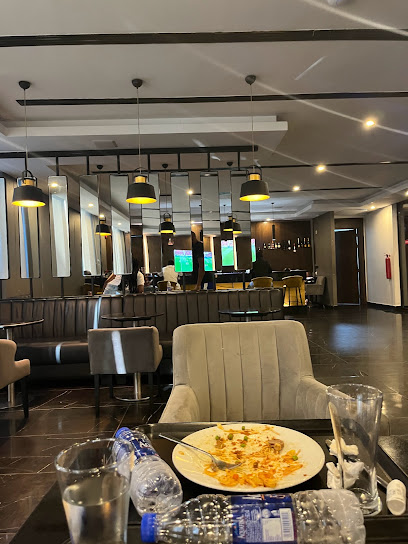
Circa lagos
Experience exquisite dining at Circa Lagos - where modern cuisine meets vibrant culture in Lekki Phase I.
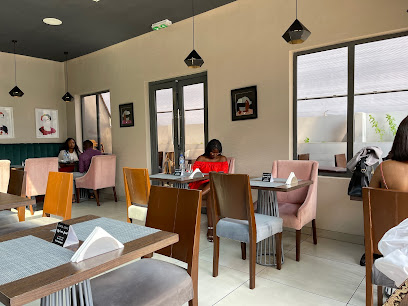
The Harvest Lagos
Experience authentic West African cuisine at The Harvest Lagos - where tradition meets modernity in every bite.
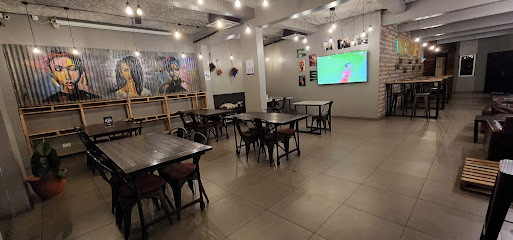
The Place Restaurant, Lekki
Discover authentic Nigerian cuisine at The Place Restaurant in Lekki Phase 1 - where every dish tells a story.
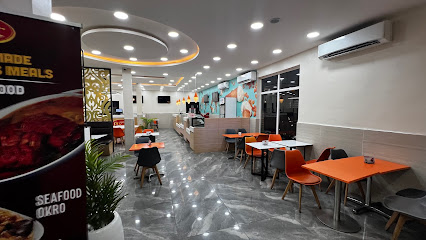
Unusual Cuisine
Experience the best of local and international cuisine at Unusual Cuisine in Lekki Phase I, Lagos – where every meal is a delightful adventure.
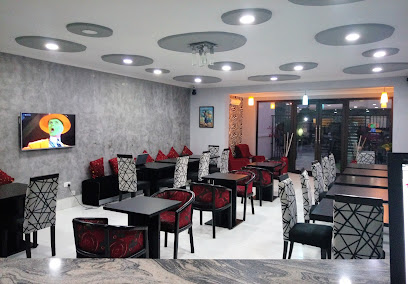
TheSideBarbyMiskay
Discover culinary delights at The Side Bar by Miskay in Lekki - where exquisite flavors meet vibrant nightlife.
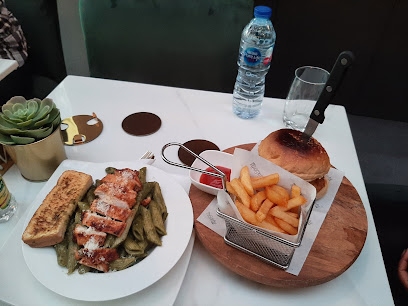
Elysium Lagos
Discover culinary excellence at Elysium Lagos – where fine dining meets exceptional service in the heart of Lekki.
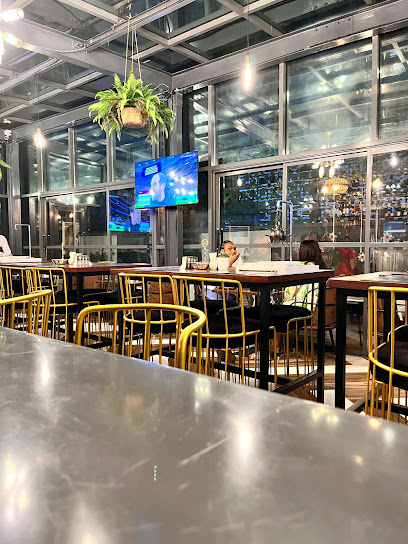
Markets, malls and hidden boutiques
Xtamaliy Fashion Stores Lekki
Explore the latest in women's fashion at Xtamaliy Fashion Stores in Lekki, Lagos, where style meets affordability in a vibrant shopping environment.
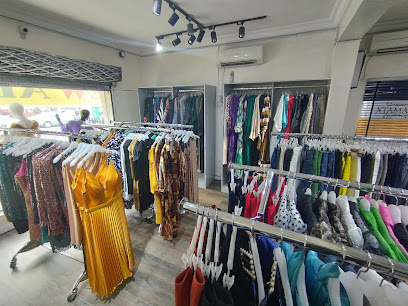
Cart2Closet - Fashion Store • Luxury Store • Quality, Affordable and Unique
Explore Cart2Closet in Lekki for quality, unique clothing that blends high fashion with affordability, perfect for every fashion enthusiast.

Collectibles Boutique
Discover the essence of Nigerian culture through unique treasures at Collectibles Boutique in Lekki Phase I, Lagos.
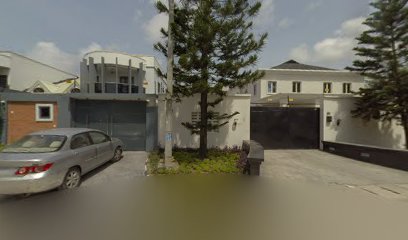
shopkyluxury fashion stores lekki Lagos
Discover unique and affordable haute couture fashion at Shop Kyluxury in Lekki, Lagos - the ultimate destination for style enthusiasts.
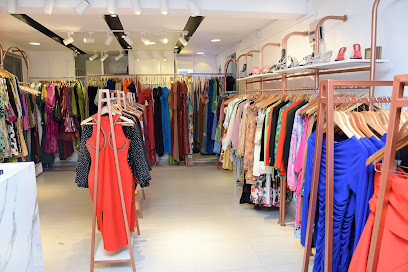
NUMZLUXURY
Discover the elegance of NUMZLUXURY in Lekki, where fashion meets luxury with exquisite bags, dresses, and shoes.
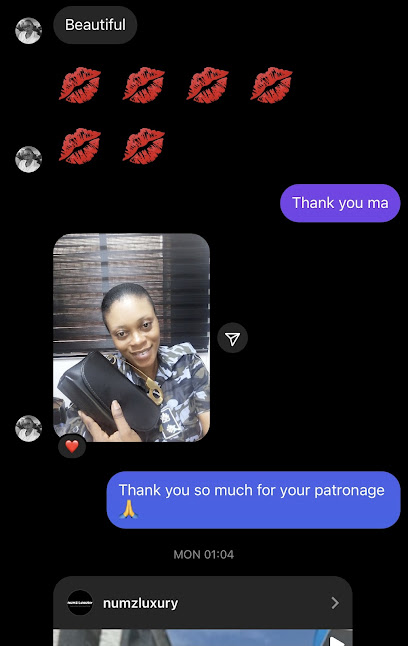
THE LEGITIMATE STORE
Explore The Legitimate Store in Lekki, Lagos - your ultimate shopping destination with diverse brands, dining, and entertainment options.
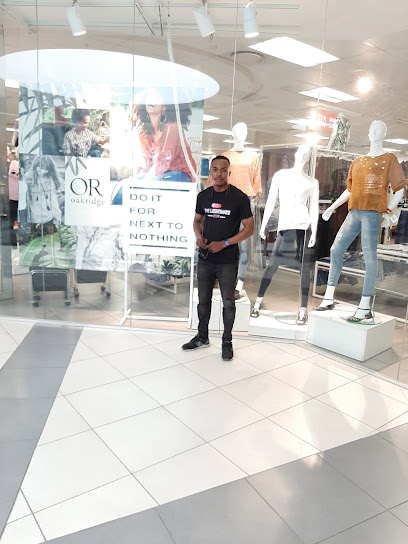
Digni-plus
Discover authentic Nigerian souvenirs at Digni-plus in Lekki Phase 1, where culture and craftsmanship meet in a vibrant shopping experience.
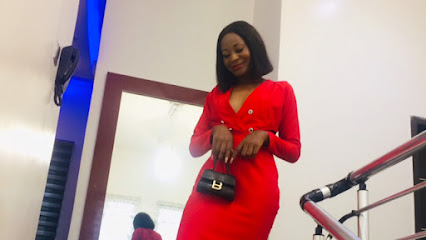
LAFAMILIA SHOPPING CENTER
Discover the unique charm of Lafamilia Shopping Center, a boutique haven in Lekki, Lagos, where local fashion meets international flair.
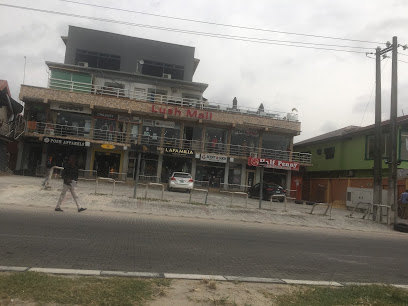
Essential Stores NG
Discover unique fashion at Essential Stores NG in Lekki, where local style meets contemporary design for the ultimate shopping experience.
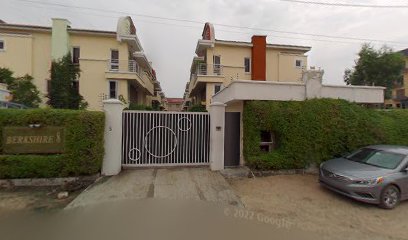
Collectible Clothing Boutique
Explore the vibrant fashion scene at Collectible Clothing Boutique in Lekki Phase 1, offering unique clothing and accessories that celebrate local style.
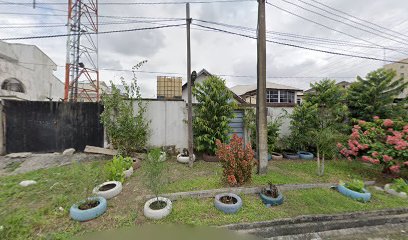
Essential bars & hidden hideouts
Sailors Lounge | Restaurant | Lounge | Bar in Lekki Lagos
Discover Sailors Lounge in Lekki, Lagos - a vibrant bar and restaurant offering delicious cuisine, refreshing drinks, and stunning views for a perfect evening.
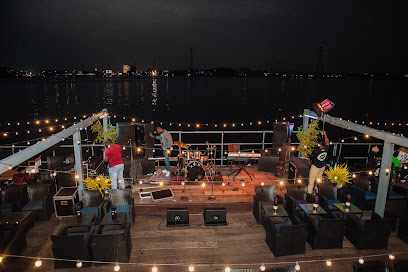
Bay Lounge
Discover the vibrant atmosphere of Bay Lounge, Lagos' premier waterfront bar and lounge, perfect for relaxation and entertainment.
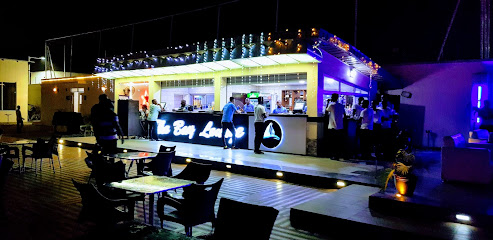
Xovar
Discover the vibrant ambiance and exquisite culinary delights at Xovar, the premier lounge in Lekki, Lagos.
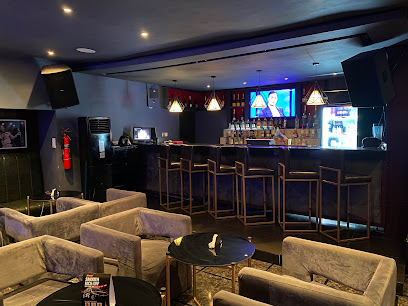
E Bar Metro
Experience the vibrant nightlife of Lagos at E Bar Metro, a lively bar and grill with live music, karaoke, and delicious cuisine.
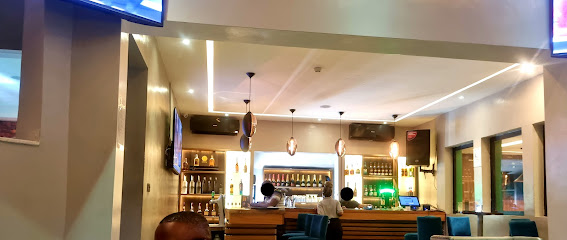
Churchill's
Discover Churchill's in Lekki: A lively bar and restaurant offering delicious meals and a vibrant atmosphere in the heart of Lagos.
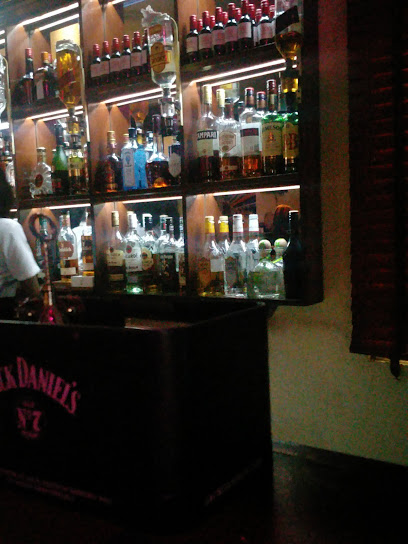
Jesse Lounge
Experience the vibrant nightlife of Lekki at Jesse Lounge, where lively music meets a diverse drink selection in a welcoming atmosphere.
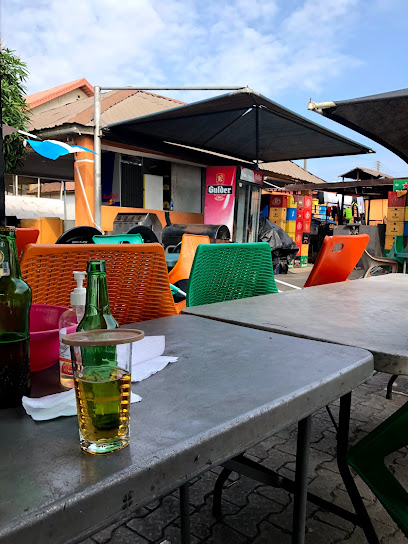
Splash Bar and Lounge
Experience the vibrant nightlife of Lagos at Splash Bar and Lounge, where relaxation meets entertainment in a stylish setting.
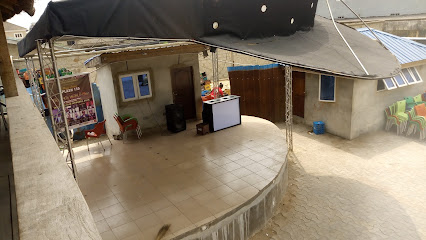
Bush Bar and Restaurant
Explore the vibrant culinary scene at Bush Bar and Restaurant in Lekki, where delectable dishes and lively ambiance await.

Alibi Lounge
Discover Alibi Lounge in Lekki, where chic cocktails and a vibrant atmosphere create the perfect setting for socializing in Lagos.
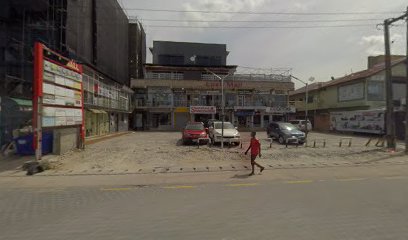
FIRE & ICE Rooftop Lounge Lekki
Experience the vibrant nightlife of Lagos at FIRE & ICE Rooftop Lounge, where stunning views and delicious cocktails create unforgettable moments.
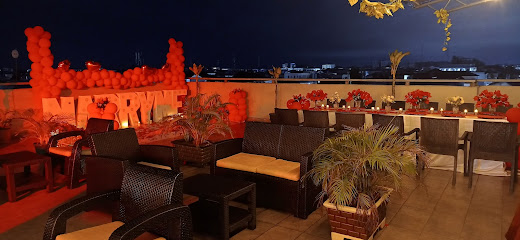
Local Phrases
-
- HelloBawo ni
[bah-woh nee] - GoodbyeOdabo
[oh-dah-boh] - YesBee
[bee] - NoBe ko
[beh koh] - Please/You're welcomeAbeg
[ah-beg] - Thank youEse
[eh-seh] - Excuse me/SorryE jor
[eh jaw] - How are you?Kedu ka imere?
[keh-doo kah ee-meh-reh] - Fine. And you?Olee. Kedu ka imere?
[oh-lee. keh-doo kah ee-meh-reh] - Do you speak English?O nwere mmadu to si Bekee?
[oh nweh-reh mmah-doo toh see beh-keh] - I don't understandA si na m n'ihi aga
[ah see nah m nee-hee ah-gah]
- HelloBawo ni
-
- I'd like to see the menu, pleaseA ga eme ka m jide menu, biko
[ah gah eh-meh kah m jee-deh menu, bee-koh] - I don't eat meatA choo ka m were nna
[ah choh kah m weh-reh nah] - Cheers!Oyinbo
[oh-yin-boh] - I would like to pay, pleaseA ga eme ka m lee, biko
[ah gah eh-meh kah m leh, bee-koh]
- I'd like to see the menu, pleaseA ga eme ka m jide menu, biko
-
- Help!Kee ya m
[keh yah m] - Go away!Gba l'aya!
[gbah lah-yah] - Call the Police!Kee polis!
[keh poh-lees] - Call a doctor!Kee docta!
[keh doh-kah] - I'm lostA di m agu
[ah dee-m ah-goo] - I'm illA na-eti
[ah nah eh-tee]
- Help!Kee ya m
-
- I'd like to buy...A ga eme ka m rie...
[ah gah eh-meh kah m ree-eh] - I'm just lookingA na-esi gbagi
[ah nah-eh-see gah-gee] - How much is it?Ebee ka i ga-enye?
[eh-beh kah ee gah-ehn-yeh] - That's too expensiveO dika akara
[oh dee-kah ah-kah-rah] - Can you lower the price?O nwere ike i hazi okpom?
[oh nweh-reh ee-keh ee hah-zee oh-kpohm]
- I'd like to buy...A ga eme ka m rie...
-
- What time is it?Kedu ka aga?
[keh-doo kah ah-gah] - It's one o'clockO bu otu agha
[oh boo oh-too ah-gah] - Half past (10)Usi n'ime (iri)
[oo-see nee-meh ee-ree] - MorningUtutu
[oo-too-too] - AfternoonEhihie
[eh-hee-hee-eh] - EveningIgwe
[ee-gweh] - YesterdayEkele
[eh-keh-leh] - TodayOnwa
[ohn-wah] - TomorrowAfo
[ah-foh] - 1Otu
[oh-too] - 2Abuo
[ah-boo-oh] - 3Ato
[ah-toh] - 4Ano
[ah-noh] - 5Ise
[ee-seh] - 6Isii
[ee-see-ee] - 7Asaa
[ah-sah-ah] - 8Ise-eni
[ee-seh-eh-nee] - 9Iwulu
[ee-woo-loo] - 10Iri
[ee-ree]
- What time is it?Kedu ka aga?
-
- Where's a/the...?Ebee ka n'azu...
[eh-beh-kah nah-zoo] - What's the address?Kedu ka adreesi?
[keh-doo kah ah-dree-see] - Can you show me (on the map)?O nwere ike i weta m (na map)?
[oh nweh-reh ee-keh ee weh-tah m (nah map)] - When's the next (bus)?Kedu ka ime (bus) ebe a?
[keh-doo kah ee-meh (boos) eh-beh ah] - A ticket (to ....)Tiket (si ....)
[tee-keh (see)]
- Where's a/the...?Ebee ka n'azu...
History of Lekki
-
The Lekki area is historically significant as part of the Lagos region, which was originally settled by the Awori people. The name 'Lekki' is derived from the local dialect, and the area developed as a fishing village before becoming a more prominent part of Lagos. It served as a coastal settlement, benefiting from the rich marine resources of the Atlantic Ocean.
-
During the colonial era in the late 19th and early 20th centuries, Lekki began to see infrastructural development as Lagos turned into a major port city under British colonial rule. This resulted in the establishment of roads and the introduction of Western education and governance systems in the area, which began to transform Lekki’s local economy.
-
After Nigeria gained independence in 1960, Lekki experienced a gradual transformation from a rural community to a suburban area. The government's focus on urban development led to the construction of residential estates and commercial properties, making it an attractive location for middle-class families and businesses.
-
In the early 2000s, the establishment of the Lekki Free Trade Zone was a pivotal moment for the area's economy. This initiative aimed to attract foreign investment and promote industrial growth, further enhancing Lekki's status as an economic hub within Lagos State. The zone has since attracted numerous multinational companies, boosting local employment opportunities.
-
Today, Lekki is a vibrant cultural melting pot, reflecting the diverse ethnicities and cultures of Lagos. The area hosts numerous festivals, art exhibitions, and culinary events that celebrate both local traditions and contemporary influences. The Lekki Arts and Crafts Market is a notable venue where artisans showcase traditional Nigerian crafts, underscoring the area’s commitment to preserving its cultural heritage.
Lekki Essentials
-
Lekki is accessible from various parts of Lagos. If you're coming from Victoria Island, you can take a taxi or an Uber, which takes about 30 minutes depending on traffic. From Ikeja, the journey may take around an hour by taxi. Buses, known as BRT, also operate routes to Lekki, providing an affordable option. Additionally, Lekki is served by major roads like the Lekki-Epe Expressway, making it convenient for travelers with private vehicles.
-
Once in Lekki, getting around is relatively easy. Taxis and rideshare services like Uber and Bolt are widely available. For a more local experience, you can use the yellow 'Danfo' buses, although they can be crowded. Bicycles are also a popular way to explore specific areas like Lekki Phase 1. Walking is feasible in certain parts, especially near Lekki Leisure Lake and the Lekki-Ikoyi Link Bridge.
-
Lekki is generally safer than other neighborhoods in Lagos, but it is essential to remain vigilant. Avoid walking alone late at night, especially in less populated areas. Areas such as Ajah and the outskirts of Lekki are known for higher crime rates, including theft and scams targeting tourists. Always secure your belongings and avoid displaying expensive items in public.
-
In case of an emergency, dial 112 for police assistance or 07082830000 for medical emergencies. Familiarize yourself with the location of the nearest hospital, such as the Lekki General Hospital. It's advisable to have travel insurance that covers medical emergencies, and it's useful to keep a list of emergency contacts handy.
-
Fashion: Do dress modestly, especially when visiting religious sites. Avoid overly revealing clothing. Religion: Do respect local customs; covering your shoulders and knees is advisable in churches. Public Transport: Do be polite and offer your seat to the elderly. Don't eat or drink on public buses. Greetings: Do greet with a handshake; a smile goes a long way. Eating & Drinking: Do try local foods and drinks; don't refuse food offers, as it can be seen as impolite.
-
To experience Lekki like a local, explore the Lekki Arts and Crafts Market for handmade goods and souvenirs. Engage with local vendors for an authentic experience. Visit the Lekki Conservation Centre, where you can walk the canopy walkway and see wildlife. Attend local festivals or events if possible, as they often showcase the vibrant culture of the area. Lastly, enjoy the beaches, but be mindful of the tides and local advice on safety.
Nearby Cities to Lekki
-
Things To Do in Abeokuta
-
Things To Do in Porto-Novo
-
Things To Do in Ibadan
-
Things To Do in Cotonou
-
Things To Do in Ouidah
-
Things To Do in Lokossa
-
Things To Do in Aneho
-
Things To Do in Benin City
-
Things To Do in Warri
-
Things To Do in Lomé
-
Things To Do in Notse
-
Things To Do in Atakpamé
-
Things To Do in Kpalimé
-
Things To Do in Ho
-
Things To Do in Asaba











